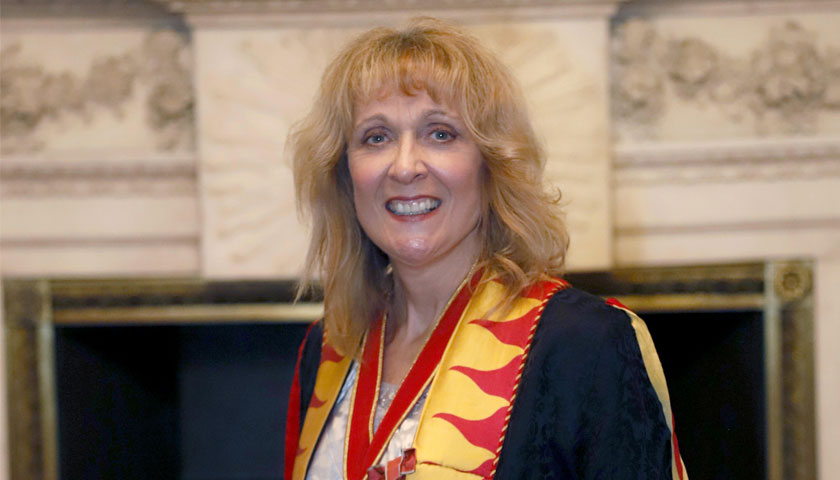The second in our Marketing in the time of COVID-19 series is written by Prof Averil Macdonald OBE, DSc, DUniv, FRSA, Averil is Deputy Master of the Worshipful Company of Fuellers and Freelance Diversity and Inclusion Consultant. She has kindly written about what they do and how Covid-19 has affected them.
One of the oldest charities continues to work to address a very 21st century problem through Covid-19
With its roots forming in 1330, the Worshipful Company of Fuellers, better known simply as ‘The Fuellers’, is today, counted amongst the most historic UK charities, but it’s certainly not the oldest!
Prof Averil Macdonald OBE, DSc, DUniv, FRSA and Master of The Fuellers explains the history behind the Liveries, the often un-recognised contribution they make to education, and how The Fuellers are working hard to address the impact of Covid-19 on its work.
History
Despite the earliest record of a Livery Company being 1130 when the Guild of Weavers were mentioned in the Pipe Roll (financial records of England) times have of course changed, and today new Liveries have formed including the World Traders, Information Technologists and Airlines Pilots. Despite the distance of time, Livery Companies continue to carry out their important work that encompass those early concepts: fostering their trade in a wide context; serving the community’ and embracing modern skills and education.
Today, all Liveries are non-commercial and have their own charitable trusts; the combined charitable contribution of the Liveries exceeds £40 million per annum!
The impact of Covid-19 on our support
Livery Companies sit in an unusual position. We are the voice of our industry in the City of London and have our own charitable trusts that provide funding to other related charities.
A lot of the money we raise as Fuellers is generated through a number of charity fundraising events throughout the year, smaller more informal events which tend to be visits to industrial engineering and energy-based companies and through direct personal donations by our members.
Clearly at the current time, raising funds is a problem for everyone; we are particularly aware that the more modestly sized charities are struggling financially while the bigger ones, especially those in the healthcare space aren’t experiencing the same impact from the pandemic. Because we always want our members to see the positive outcomes of our involvement and contributions, we tend focus on the smaller charities however requests could range from a letter by a single individual wanting our support in improving their career development, to the RNLI needing fuels for its lifeboats.
All the causes we support will have a connection with energy and a major part of what we do is supporting education within the sector.
Unfortunately Covid-19 has both curtailed our fundraising events and also postponed the delivery of many of the education initiatives that we support. However our partner charities are nothing if not creative: numerous on-line initiatives have emerged, including Engineering@Home – a series of projects for students to try at home created by the Smallpeice Trust (one of our future pieces will be by Kevin Stenson of The Smallpeice Trust).
But not all our donations are financial.
We try to be as broad minded as possible in the selection of causes to support and we are firm believers that money is one thing, but the person, with their personal knowledge and contacts, is also equally important. While funding educational courses and scholarships is vital, giving up our time to present and talk to students to give them industry role models or to offer mentoring as they undertake projects, is equally impactful.
Not only does the UK need two million more engineers by 2025, but we also have the lowest percentage of female energy and engineering professionals in Europe; 12.37 per cent, compared with countries such as Latvia, Bulgaria, and Cyprus who have nearly 30 per cent. The problem isn’t based on a lack of opportunities for women in energy and engineering; it is simply a case of female students not being encouraged to consider this as a potential career.
Therefore, for girls to see me, a female physicist, talk about my career, it triggers incredibly positive reactions.
With schools and business’ shut, aside from online ‘events’ it has been a challenge to pursue alternative avenues for our work. However, amidst all the bad news there are pockets of good; through our partnerships with organisations such as The Smallpeice Trust, we have been able to continue supporting and engaging young people with STEM.
Fuellers moving to Green Energy
It was our ‘Future Energy Campaign’ that got us involved in our long standing, valuable partnership with the engineering, energy and IT education charity, The Smallpeice Trust. This campaign supports the engineering and energy industry by raising money to get children interested in, and excited by, future energy provision as a career.
The Trust’s and our objectives are perfectly aligned. In its words, ‘together we can achieve more.’ We are very aware of the inequality in the energy industry; not only access to those from disadvantaged backgrounds but also the gender imbalance and like us, The Smallpeice Trust, was set up to give young people, especially girls, role models and experiences to fuel their passion for engineering; supporting social mobility offering all students the opportunity to meet female role models at training days and residential training courses at its partner engineering organisations’ premises. These range from charities like us, to large corporations such as Siemens and Thales who all host, part fund, or where necessary, fully fund these training experiences.
We hope that despite these unprecedented times, our work will continue to strengthen engineering excellence in the UK which is wholly consistent with the Trust’s and our vision of helping an increasing number of young people to acquire life, leadership and engineering skills.
Thank you to Averil for writing this piece, it is very much appreciated. To see more of the brilliant work done by the Worshipful Company of Fuellers visit their website here!



